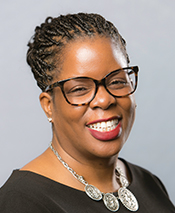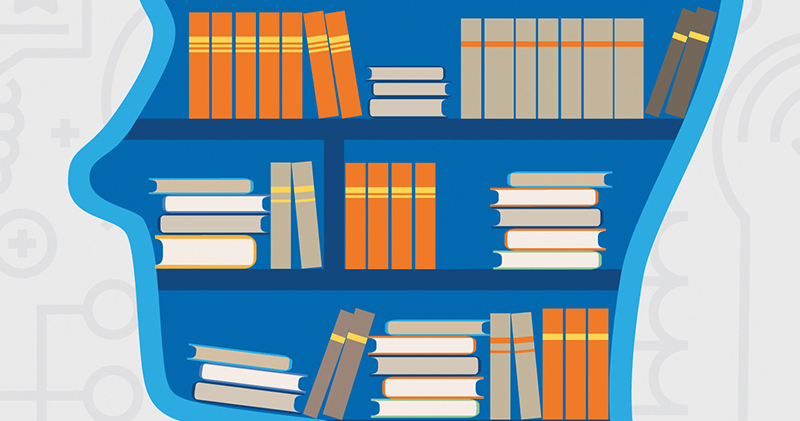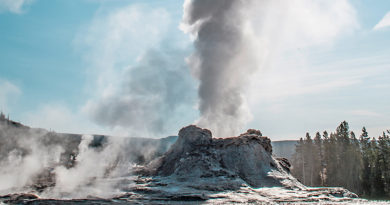Why Certify?
By Jill Banks
In recent years, the role of the cable technician has transformed from someone we think about only to connect us to entertainment to that of an essential worker, ensuring we stay connected. From work and school to social activities, entertainment, and healthcare, maintaining our myriad connections has never been more important and there is a greater understanding that skilled technicians are paramount to that effort.
Surging network connections
According to Statista, there are about 21.5 billion interconnected devices in the world and that number is set to explode as Internet consumption rises and new gadgets and machinery hit the market. According to the Cisco IoT forecast, ownership of interconnected machines will double in 2023 and the number of networked device ownership worldwide will grow to 3.6 per person. According to Deloitte, the average number of connected IoT devices per U.S. household was already up to 22 in 2022!
These devices are automating our lives and changing the way we live. Customers, who don’t want to be tethered to a hardline cable, increasingly depend on these devices and wireless connections for information, socialization, education, entertainment and automation of day-to-day tasks. As a result, the reliability of the network and in-home services has also become increasingly essential. Technology is going to continue changing our lives and it is going to take a lot of skilled labor to keep us connected.
The cable industry needs a steady flow of qualified field technicians to keep up with technology and overcome severe labor shortages. We must continually train a skilled workforce as the broadband industry enters another expansion cycle.
For more than 50 years, the Society of Cable Telecommunications Engineers (SCTE®) has been dedicated to providing the cable telecommunications industry with the knowledge, tools and resources necessary for organizations to develop their technical workforce and for professionals to advance their careers. Whether a cable technician is looking to take an in-depth multi-week course to build knowledge on their way to becoming SCTE certified, or they need a quick refresher, SCTE has the essential knowledge for cable professionals.
Certification prep courses, technology training courses, educational webinars and national events, plus local chapter technical sessions and study groups all support the successful achievement of certification.
Why certify?
SCTE-certified professionals are committed to learning new skills and staying on top of industry standards and best practices. Training provides a firm foundation of knowledge, in-depth understanding, and ongoing professional development that sets SCTE-certified professionals apart as experts in the industry. To maintain a cutting-edge workforce, SCTE-certified members are required to maintain their certification status, with SCTE certification remaining valid for a period of three years.
After all, SCTE-certified experts are building the networks of the future with the power and capacity to support whatever comes next. As the industry’s premier professional endorsement, SCTE certification provides an opportunity for learners to gain recognition for skills, promote their expertise, and advance their career.
I’m often asked, “is there a difference between becoming SCTE-certified and receiving a certificate of completion after having finished an SCTE training course?”
Yes, there is. With SCTE training, you are building your knowledge and competencies, where the goal is to learn a new skill and demonstrate your comprehension of it. However, when you take the steps to become certified, you are confirming your existing knowledge and competencies. The goal is to complete an assessment that validates your mastery of an industry topic.
Additionally, to remain a certified individual, certification must be renewed every three years. Conversely, you are not asked to retake any SCTE training once you’ve acquired your certificate of completion.
Simply put, a certificate indicates you’ve completed an instructional course on a topic, while becoming certified is proof to the industry, validating that you know your stuff, inside and out.

Certifiable growth
Certifications grew by more than 10 percent YoY from 2020 to 2021, another 7 percent in 2022, and by almost 80 percent over the last two years when compared to 2019 results. Those passing certifications grew over 25 percent YoY from 2020 to 2021 and those levels have maintained throughout 2022.
SCTE offers more than a dozen different certifications for a variety of installers, technicians and engineers, including several examinations in Spanish. From the entry-level Broadband Premises Installer (BPI) Certification to the DOCSIS® Engineering Professional (DEP) Certification offered in partnership with CableLabs®, there is a program for every level.
The top five SCTE certifications completed in 2022 were:
- Instalador de Banda Ancha a Domicilio (BPI Spanish)
- Broadband Premises Installer v2.0
- Broadband Distribution Specialist
- Broadband Transport Specialist
- Broadband TelecomCenter Specialist
SCTE certifications help ensure that organizations have the skills to build next generation networks that seize today’s massive broadband opportunity. Developed in conjunction with industry experts representing the most successful service providers around the world, these certifications embody what network operators truly want – workers with a depth of knowledge and practical expertise that is unmatched. That translates into faster rollouts, fewer issues, higher growth and better profit margins.
With more than 50,000 SCTE certifications earned to date, SCTE-certified professionals have a proven record of getting the job done! Organizations know that hiring certified professionals helps to maximize operational expenses (OpEx), supports faster rollouts of new products and services, and contributes to building the strongest reputation in customer experience. SCTE certification is the industry’s premier professional endorsement at all levels of the telecommunications network.
We know that cable technicians, installers and those maintaining our cable plant and network are essential to keeping us connected today and tomorrow. The best ways we can support them as they support our communities is by giving them the tools, resources and knowledge to bring us the technology we need in our homes, schools and businesses. By completing a certification, a learner can show they have mastered the skills needed to problem solve and drive business results for today’s workforce and equip them for their next job.

Jill K. Banks
Director, Learning Operations, SCTE®,
a subsidiary of CableLabs®
As Director, Learning Operations for the Society of Cable Telecommunications Engineers (SCTE®), a subsidiary of CableLabs®, Jill K. Banks is responsible for creating consistent learning experiences that leverage technology, next-generation educational science and data analytics to drive cable workforce technical expertise and ROI for the industry. With over 25 years of service in L&D roles for multiple Fortune 500 companies prior, Jill has supported double-digit growth in course material for SCTE and has been instrumental in the organization’s use of 3D simulations and other technologies to improve knowledge retention, reduce training time, and increase impact.
Images provided by Author




